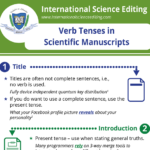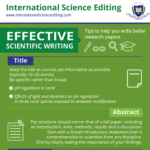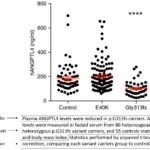A key aspect of producing a well-written scientific manuscript worthy of publication is the use of appropriate verb tenses in the different sections of the manuscript. In this infographic, we discuss when, where, and how to use the different verb tenses. The infographic contains the following text: Title Titles are often not complete sentences, i.e., […]
Effective scientific writing – Tips to help you write better research papers (infographic)
In this infographic, we provide some useful tips to help you write better research papers. The infographic contains the following text: Title Keep the title as concise yet informative as possible (typically 10-20 words). Be specific rather than broad. pH regulation in coral ✘ Effects of light and darkness on pH regulation in three coral […]
How to prevent plagiarism
In this blog, our guest blogger, Professor Emeritus Dolores Takemoto from Kansas State University discusses plagiarism in scientific documents: what it is, what the penalties are (even if unintentional), and how to avoid it. Merriam-Webster’s online dictionary defines plagiarism as “to steal and pass off (the ideas or words of another) as one’s own: use […]
How to write a figure caption
Figure captions should be standalone, i.e., descriptive enough to be understood without having to refer to the main text. Effective captions typically include the following elements: a declarative title that summarises the result or major finding of the data you are presenting in the figure; a brief description of the methods necessary to understand the […]
Affect or effect?
The basics ‘Affect’ is a verb. It means to influence something, e.g. Diet affects a person’s risk of cancer. Diet actively influences a person’s risk of cancer. ‘Effect’ is a noun. It means an outcome, i.e., the result of an action: An effect of global warming is poorer air quality. We are describing the result […]





